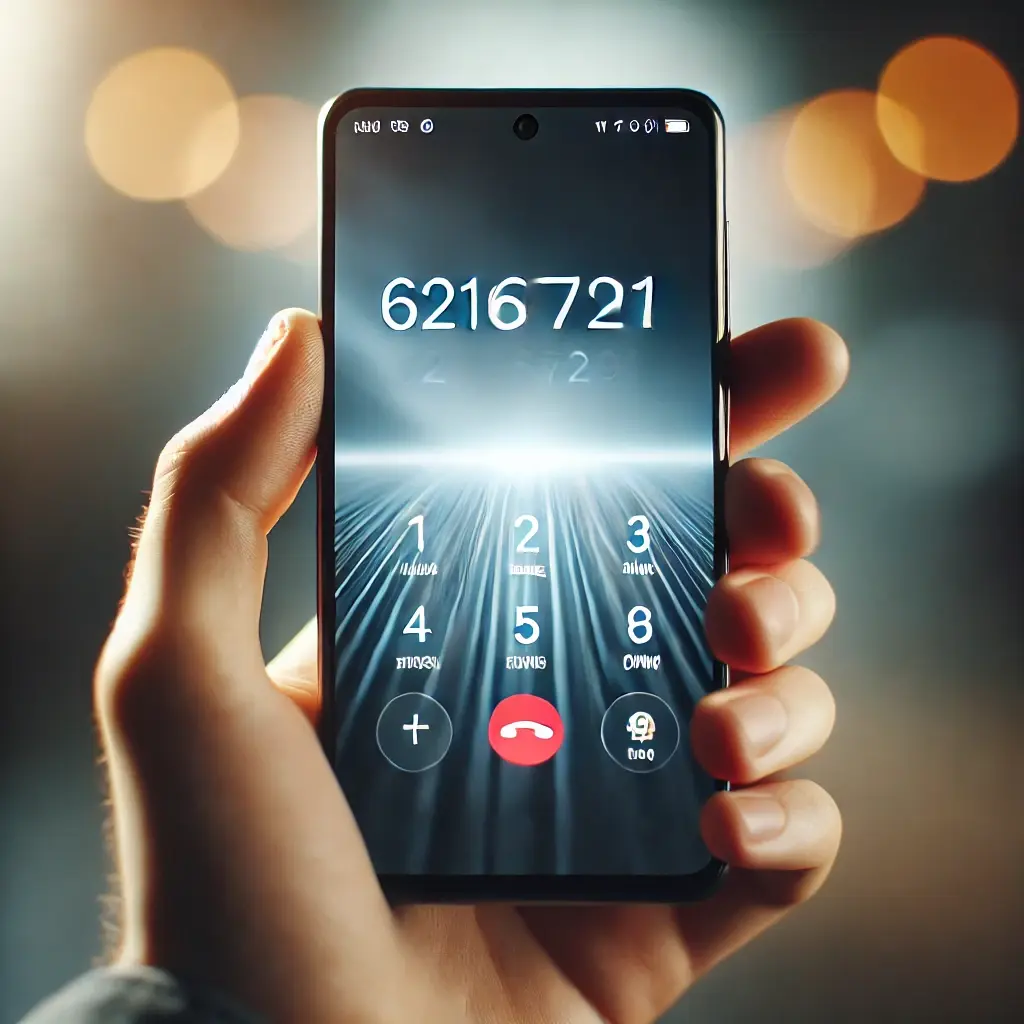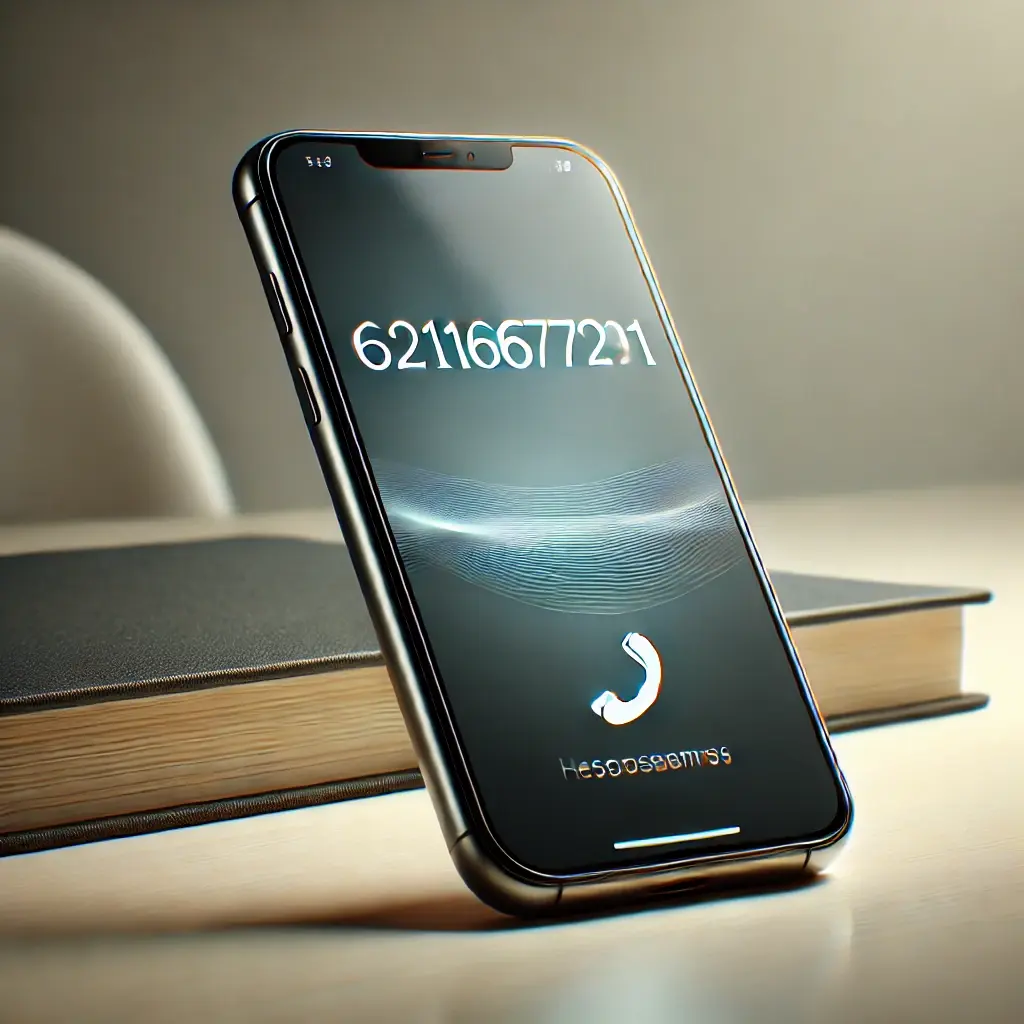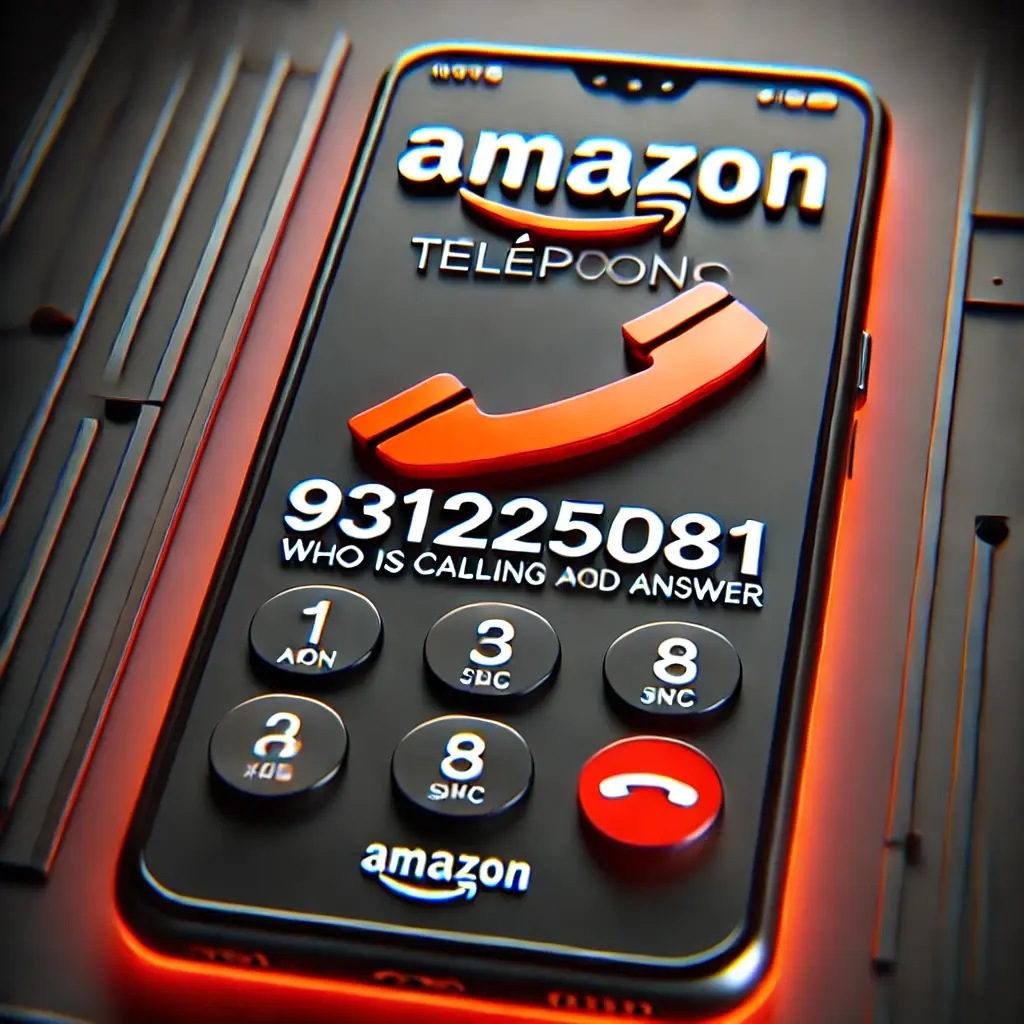Unmasking the Mystery: What Is “Telefono 621677291” and Who Is Calling?
One phone number that has drawn considerable attention is “telefono 621677291” (with similar numbers like 621296771 also reported). In this article, we break down the details behind these calls, explain their origins, and provide actionable advice on protecting yourself from unwanted communications. Read on for an in-depth look at the risks and the measures you can take to safeguard your personal information.
Spam Calls and Their Impact
Spam calls are more than just a nuisance; they can be gateways to scams and fraud. In recent years, numerous reports have highlighted the rise in unwanted calls—from telemarketing pitches to alleged scams that attempt to extract personal information. With millions of people facing daily interruptions, understanding the origin and nature of these calls is crucial. One number in the spotlight is “telefono 621677291,” which, along with variations like 621296771, is linked to several telemarketing and scam complaints.
By understanding how these calls operate, you can better protect yourself and avoid falling prey to potentially harmful schemes.
Understanding the Spam Number “Telefono 621677291
What Does the Number Represent?
The number in question, “telefono 621677291,” appears to be a mobile phone contact under the prefix 621. In Spain, this prefix is commonly associated with mobile phone networks. Users have reported that calls from numbers with the 621 prefix often belong to telemarketing or scam operations.
Reported Caller Information
Some key details reported by users include:
- Caller ID: Often displayed as “Aire Networks” or simply a mobile phone number.
- Frequency: With over 5,451 searches and 24 complaints, these numbers are a significant concern.
- Last Searched: Activity was noted as recently as 3 days ago.
- Associated Keywords: Many users mention “Iberdrola” (a well-known energy company), “solar panels,” “hang up,” “cut off,” “appointment,” and “Finetwork.”
It appears that scammers sometimes impersonate companies like Iberdrola to offer free or no-obligation appointments for solar panel installations. However, many have reported that these calls are insistent and use personal information—calling you by your name—to seem more legitimate.
Dissecting the Caller Data: What Do We Know?
A closer look at the available data on these spam calls reveals several interesting points:
| Data Point | Reported Detail |
|---|---|
| Phone Number Variations | 621677291 and 621296771 (similar prefix, different endings) |
| Caller Identification | Aire Networks; Mobile Phone |
| Search Frequency | Approximately 5,451 searches |
| Recent Activity | Last searched 3 days ago |
| Complaint Count | 24 complaints reported |
| Geographical Origin | Spain (Prefix 621 indicates mobile numbers in Spain) |
| Common Keywords | Iberdrola, Solar Panels, Hang Up, Cut Off, Appointment, Finetwork |
This table not only summarizes the key aspects of the caller data but also highlights how these calls target potential customers by invoking trusted company names and creating a sense of urgency.
Common Keywords and Themes Associated with These Calls
Users’ search terms provide a clear insight into the recurring themes that spam callers use to lure their victims. The most commonly used words include:
- Iberdrola: Often mentioned as the company behind solar panel offers.
- Solar Panels: Indicative of the product or service being promoted.
- Hang Up / Cut Off: Reflects user frustration with abrupt disconnections.
- Appointment: A common tactic to book consultations.
- Finetwork: Another company name that sometimes appears in these calls.
These keywords indicate that the scammers are employing a multi-pronged strategy: using reputable company names to gain trust and then pressuring the recipient to engage in an appointment-setting conversation. The call scripts might begin with a polite introduction, but the follow-up questions can feel invasive as they ask for personal information and attempt to gauge your willingness to commit to a service.
The Role of Telemarketing and Scam Tactics
Telemarketing Tactics
Telemarketing calls, such as those reported from the 621-prefixed numbers, generally follow a structured script. The goal is to promote a service or product—often with the promise of free consultation or installation (as in the case of solar panels). Even when the approach is polite, the insistence on securing an appointment can be overwhelming.
Alleged Scam Indicators
Beyond standard telemarketing, some calls have been flagged as “alleged scam” due to the following:
- Use of Personal Information: Callers often address you by name, which can make the call seem legitimate but is actually a red flag.
- Pressure Tactics: Repeated calls and insistence on confirming appointments, even after you say no.
- Incomplete Conversations: Calls that only ring or hang up quickly, which might be a technique to confirm active phone numbers before a more aggressive follow-up.
Users have shared sentiments such as “Don’t call me anymore…you idiots, don’t you see that you’re blocked?” and noted that the calls tend to be insistent and heavy, suggesting a possible organized scam network.
Comparative Analysis: Telemarketing vs. Scam Calls
To further understand the nuances of these calls, it is helpful to compare telemarketing calls with scam calls:
| Aspect | Legitimate Telemarketing | Alleged Scam Calls |
|---|---|---|
| Initial Approach | Polite, offering free consultations | Use of personal details to create trust |
| Script Consistency | Follows a regular script; can be predictable | Varies with some calls disconnecting abruptly |
| Frequency of Calls | May call during business hours; frequency is moderate | Often repeated multiple times with a high degree of persistence |
| User Interaction | Seeks to set up appointments; willing to answer questions | Pressures the user; may ask for personal details without clear purpose |
| Response to Refusal | Accepts no as an answer | May ask for reasons or persist even after a clear refusal |
This comparison highlights that while both types of calls can be annoying, scam calls are generally more intrusive and potentially dangerous, as they aim to harvest your personal information.
Potential Risks Associated with These Calls
Financial Risks
One of the primary dangers of answering spam calls is the risk of financial scams. Scammers may ask for bank details, credit card information, or even offer “too good to be true” deals that lead to hidden fees.
Privacy Invasion
When scammers use personal information—such as addressing you by name—they breach your privacy. This can be especially concerning if your data has been sourced from a leak or an insecure database.
Psychological Impact
Constant spam calls can cause stress and anxiety, making you feel harassed or unsafe. Repeated exposure to such calls may also desensitize you, making it easier for scammers to catch you off guard in the future.
Security Threats
In some cases, scammers might attempt to trick you into downloading malicious apps or clicking on harmful links that compromise your device security.
Read previous post Who Called 5104799266?
Practical Protection Methods Against Spam Calls

The good news is that there are several practical steps you can take to protect yourself from spam and scam calls. Below are some effective methods:
1. Use Call-Blocking Apps
Call-blocking apps are one of the most effective ways to screen your calls. These apps can automatically detect and block known spam numbers. Popular options include:
- Truecaller: Identifies and blocks spam calls based on a vast database of reported numbers.
- Hiya: Offers spam detection and caller ID services.
- Mr. Number: Known for its ability to block unwanted calls and text messages.
Using these apps can help you avoid interruptions and potential scams by filtering out calls before they reach you.
2. Report Spam Numbers
If you receive a call from a suspicious number like “telefono 621677291,” report it to your local authorities or use online reporting platforms. This collective effort can help authorities track down scammers and prevent further incidents.
3. Enable Built-In Phone Protections
Modern smartphones come with built-in features designed to protect against spam calls. Here are some tips:
- Silence Unknown Callers: On iPhones, you can enable the “Silence Unknown Callers” feature. This sends calls from numbers not in your contacts directly to voicemail.
- Caller ID and Spam Protection: Android phones often have settings that automatically warn you if a number is suspected to be spam.
- Regular Updates: Keep your phone’s software updated to ensure you have the latest security features.
4. Be Cautious with Unknown Callers
When you receive a call from an unknown number:
- Do Not Share Personal Information: Never provide details like your full name, address, or banking information.
- Let It Go to Voicemail: If you’re unsure, let the call go to voicemail and review the message later.
- Verify the Caller: If the caller claims to be from a reputable company, hang up and call back using the official contact number from the company’s website.
5. Educate Yourself on Common Scams
Staying informed is key. Educate yourself about the latest telemarketing and scam tactics. Websites like techexplore.co.uk offer spam number checking tools that allow you to verify whether a number is known for spam or scams. These resources can give you peace of mind and help you decide whether to answer an incoming call.
Using Tools to Check and Block Spam Numbers
How to Use Spam Number Checking Tools
Tools like the one available on techexplore.co.uk provide a simple way to verify if a number is associated with spam or scam activities. Here’s how you can use such a tool:
- Enter the Phone Number: Type in the suspicious number (for example, “621677291”).
- Review the Report: The tool will display data such as the number’s origin, user complaints, and search frequency.
- Decide on Action: If the report indicates that the number is flagged for telemarketing or scams, block the number immediately.
- Share Your Experience: Reporting your experience on these platforms helps build a community defense against scams.
Benefits of Using Verification Tools
- Data-Driven Insights: These tools often provide detailed statistics, like the number of searches and complaints.
- Community Feedback: User reviews and comments add another layer of verification.
- Quick Decision Making: Knowing the history of a number can help you decide whether to answer, ignore, or block the call.
The Bigger Picture: Why These Calls Persist
Economic Incentives Behind Spam Calls
Spam calls and telemarketing scams are driven by economic incentives. Even if only a small fraction of recipients engage with the call, scammers can earn significant sums. This profitability encourages them to refine their techniques and target more numbers.
Use of Advanced Technology
Scammers employ advanced technology to mask their identities and mimic reputable companies. Techniques such as caller ID spoofing make it challenging to distinguish between legitimate calls and scams. This technological sophistication is one reason why numbers with the 621 prefix, like “telefono 621677291,” continue to be problematic.
Regulatory Challenges
Despite efforts by regulatory bodies to curb spam calls, these schemes often operate across borders, complicating enforcement. Spain’s telecommunications regulators are working to implement stricter controls, but the rapidly evolving nature of technology means that scammers continuously adapt to new defenses.
Additional Data-Driven Insights
The following chart highlights some key metrics associated with the number and its reported activity:
| Metric | Value/Detail | Insight |
|---|---|---|
| Search Frequency | 5,451 searches | Indicates high user interest and recurring issues |
| Complaint Count | 24 complaints | Reflects growing frustration and potential harm |
| Reported Themes | Iberdrola, Solar Panels, Appointment | Shows targeted sectors (energy and home services) |
| Call Classifications | Telemarketing (2 times), Alleged Scam (1 time) | Suggests mixed usage of legitimate marketing and scams |
This data-driven approach allows users to see the pattern behind these calls and reinforces the need for robust protection measures.
Final Thoughts
Spam calls from numbers like “telefono 621677291” and its variations (such as 621296771) are a growing concern in today’s digital age. With telemarketing scams and alleged fraudulent activities on the rise, it is essential for everyone to be aware of the risks and to take proactive steps to protect themselves.




Post Comment